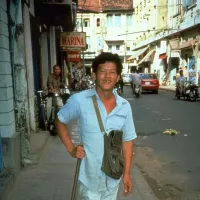Bhutan, the Kingdom of Bhutan, is a landlocked nation in South Asia nestled in the Eastern Himalayas, bordered by China and India. Its population exceeds 727,000 within a 38,394 sq km territory. It operates as a democratic constitutional monarchy, with the King as head of state and a Prime Minister as head of government. Vajrayana Buddhism is the state religion, headed by the Je Khenpo.
1907: Reference to Political System
Alarmed by the census measures of 1988, many began to protest for civil and cultural rights and demanded a total change to be brought to the political system that existed since 1907.
1907: Ugyen Wangchuck Chosen as King
In 1907, Ugyen Wangchuck was unanimously chosen as the hereditary king of Bhutan by the Lhengye Tshog.
1907: Social contract with the monarchy
Since 1907, there has been a social contract with the monarchy. In 2008 Bhutan's democratic transition is seen as an evolution of this contract.
1910: Treaty of Punakha
In 1910, Bhutan became a de facto protectorate of the British Empire under the Treaty of Punakha.
August 1947: Recognition of Indian Independence
In August 1947, after the new Union of India gained independence from the United Kingdom, Bhutan became one of the first countries to recognise India's independence.
August 1949: Treaty with India
On 8 August 1949, Bhutan signed a treaty with the newly independent India, mirroring the 1910 agreement where Britain controlled Bhutan's foreign relations.
1949: Friendship treaty with India
In 1949, Bhutan signed a friendship treaty with the newly independent Dominion of India.
1949: Treaty of 1949
In 1949, The Government of India stated it will exercise no interference in the internal administration of Bhutan.
1950: Land Holding Title Requirement Introduced
In 1950, Bhutan required proof of officially issued land holding titles prior to 1950 to obtain citizenship, which disproportionately affected the Lhotshampa population.
1950: Citizenship Restrictions Based on Land Ownership
In 1950, denial of citizenship occurred to those who were unable to prove officially issued land holding title prior to 1950. These actions specifically targeted ethnic Nepali-speaking minority groups.
1953: Establishment of National Assembly
In 1953, King Jigme Dorji Wangchuck established Bhutan's legislature, a 130-member National Assembly, to promote a more democratic form of governance.
1958: Citizenship Stripped Based on 1958 Nationality Law
In 1958, deportees were stripped of their citizenship, which had been granted by the 1958 Nationality Law.
1958: Tax Receipt Requirement
In 1988, during the census, each family was required to present census workers with a tax receipt from the year 1958, or with a certificate of origin, to prove that they were indeed Bhutanese citizens.
1960: Border Closure with China
In 1960, Bhutan closed its border with the Tibet Autonomous Region of China after an influx of refugees.
1961: Appointment of Director of Education
In 1961, Bhutan established a central education authority by appointing a director of education. This marked the beginning of an organised, modern school system that offered free and universal primary education.
1964: Abandoning Hindi
In 1964, the use of Hindi was abandoned as part of the modernization of the Dzongkha language. Hindi was previously used to help start formal secular education in the country.
1965: Royal Advisory Council
In 1965, King Jigme Dorji Wangchuck established a Royal Advisory Council.
1968: Formation of Cabinet
In 1968, King Jigme Dorji Wangchuck formed a Cabinet.
1971: Joins the United Nations and recognises Bangladesh
In 1971, Bhutan joined the United Nations and was the first country to recognise Bangladesh's independence in 1971.
1971: Joined the United Nations
In 1971, Bhutan joined the United Nations, marking a step toward broader international relations.
July 1972: Jigme Singye Wangchuck Ascends the Throne
In July 1972, Jigme Singye Wangchuck ascended to the throne at the age of sixteen after the death of his father, Dorji Wangchuck.
1977: Legislations impacted Lhotshampa ethnic minority
In 1977, the Bhutanese government enacted legislations which impacted the Lhotshampa ethnic minority.
1985: Founding member of SAARC
In 1985, Bhutan became a founding member of the South Asian Association for Regional Cooperation (SAARC).
1985: Legislations impacted Lhotshampa ethnic minority
In 1985, the Bhutanese government enacted legislations which impacted the Lhotshampa ethnic minority, followed by in 1977.
1985: Decline of Agricultural Sector
In 1985, the share of the agricultural sector in Bhutan's GDP was approximately 55%.
1987: Sixth Five-Year Plan
In 1987, Bhutan's sixth Five-Year Plan (1987–92) included the 'one nation, one people' policy, introducing the Driglam Namzhag, a code of traditional Drukpa dress and etiquette which required all citizens to wear specific garments.
1988: Census Conducted
In 1988, Bhutan conducted a census in southern Bhutan requiring families to present a tax receipt from 1958 or a certificate of origin to prove Bhutanese citizenship, leading to protests and subsequent unrest.
1988: Special Census and Deportation of Lhotshampas
In 1988, Bhutanese authorities conducted a special census in southern Bhutan to review the status of legal residents, leading to the deportation of Lhotshampas and stripping of citizenship for some. This was a response to unrest and political demonstrations.
March 1990: Discontinuation of Nepali Language in Schools
In March 1990, the teaching of Nepali language, spoken by ethnic Lhotshampas, was discontinued in Bhutanese schools, along with all Nepali curricular materials.
1990: Purge of Lhotshampas
A purge of Lhotshampas occurred from 1990 to 1992, potentially altering the population demographics.
1990: High Maternal Mortality Rate
In 1990, Bhutan faced a high maternal mortality rate of 1,000.
1990: Forest Cover in 1990
In 1990, Bhutan's forest cover was 2,506,720 hectares (ha).
1990: Asian Development Bank Loan for Education
In 1990, the Asian Development Bank granted Bhutan a US$7.13 million loan to boost education programs. The funds were allocated to staff training, specialist services, equipment and furniture purchases, salaries, facility rehabilitation, and construction at Royal Bhutan Polytechnic.
June 1992: Signed Rio Convention on Biological Diversity
Bhutan signed the Rio Convention on Biological Diversity on 11 June 1992.
1992: Purge of Lhotshampas
A purge of Lhotshampas occurred from 1990 to 1992, potentially altering the population demographics.
August 1995: Party to the Convention
Bhutan became a party to the Rio Convention on Biological Diversity on 25 August 1995.
1995: WWF Analysis
Between 1995 and 1997, the Eastern Himalayas were identified as a global biodiversity hotspot in a comprehensive analysis of global biodiversity undertaken by WWF.
1997: WWF Analysis
Between 1995 and 1997, the Eastern Himalayas were counted among the 234 globally outstanding ecoregions of the world in a comprehensive analysis of global biodiversity undertaken by WWF.
1998: First bilateral agreement with China
In 1998, the first bilateral agreement between China and Bhutan was signed.
1999: Lifted Ban on Television and Internet
In 1999, the government of Bhutan lifted a ban on television and internet, making Bhutan one of the last countries to introduce television.
2000: Early Inhabitation
Around 2000 BC, stone tools, weapons, elephants, and remnants of stone structures suggest that Bhutan was inhabited, though no records exist from that time.
2000: Trade Deficit
Bhutan's exports totaled €128 million and imports totaled €164 million in 2000, leading to a trade deficit.
2003: Decline of Agricultural Sector
By 2003, the share of the agricultural sector in Bhutan's GDP declined to 33%.
2003: Inflation Rate
In 2003, Bhutan's inflation rate was estimated at three percent.
2003: Low Contraceptive Use
In 2003, contraceptive use in Bhutan was less than 1/3 of the population.
2004: National Commission for Women and Children Created
In 2004, the "National Commission for Women and Children" (NCWC) was created to promote and protect women's and children's rights in Bhutan.
January 2005: Indian Railways Agreement
In January 2005, Indian Railways planned to link southern Bhutan to its network under an agreement.
October 2005: Forest Cover
In October 2005, data released by the Ministry of Agriculture showed that Bhutan had a forest cover of 64%.
November 2005: Chinese soldiers cross into disputed territories
In November 2005, Chinese soldiers crossed into disputed territories between China and Bhutan and began building roads and bridges, leading to diplomatic discussions.
December 2005: Announcement of Abdication
In December 2005, Wangchuck announced that he would abdicate the throne in his son's favor in 2008.
2005: Economic Growth
In 2005, Bhutan's economy experienced rapid growth, increasing by eight percent.
December 2006: Immediate Abdication Announcement
On 9 December 2006, Wangchuck announced that he would abdicate immediately.
2006: Nepali Speakers
As of 2006, Nepali speakers constituted approximately 40% of Bhutan's population.
2006: Economic Growth
In 2006, Bhutan's economy continued to grow rapidly, increasing by 14 percent.
2006: King Jigme Singye Wangchuck abdicates.
In 2006, King Jigme Singye Wangchuck abdicated the throne.
2006: Addition of White-Winged Duck
In 2006, the globally endangered white-winged duck was added to Bhutan's bird list.
February 2007: Revision of Indo-Bhutan Friendship Treaty
In February 2007, the Indo-Bhutan Friendship Treaty was substantially revised, clarifying Bhutan's full control of its foreign relations, as well as its independence and sovereignty.
December 2007: First National Parliamentary Elections
In December 2007, Bhutan held its first national parliamentary elections.
2007: Second-Fastest Growing Economy
In 2007, Bhutan had the second-fastest-growing economy in the world, with an annual economic growth rate of 22.4 percent, mainly due to the commissioning of the Tala Hydroelectric Power Station.
2007: Resettlement of Lhotshampas Begins
Starting in 2007, following their forcible deportation from Bhutan, Lhotshampas who had been living in refugee camps in Nepal were resettled in western countries like the United States.
March 2008: Parliamentary Elections
In March 2008, Bhutan held its parliamentary elections.
March 2008: First National Assembly Elections
In March 2008, the first general elections for the National Assembly were held, with the Bhutan Peace and Prosperity Party (DPT) led by Jigme Thinley, winning and taking 45 out of 47 seats.
November 2008: Coronation of Jigme Khesar Namgyel Wangchuck
On 6 November 2008, 28-year-old Jigme Khesar Namgyel Wangchuck was crowned king of Bhutan.
2008: Free Trade Accord with India
In 2008, Bhutan and India signed a 'free trade' accord, allowing Bhutanese imports and exports from third markets to transit India without tariffs.
2008: New Constitution
In 2008, Bhutan's Constitution established a parliamentary government with an elected National Assembly and a National Council.
2008: Democratic transition
In 2008, Bhutan's democratic transition began, seen as an evolution of its social contract with the monarchy since 1907.
2008: UNHCR estimates Bhutanese refugees in Nepal
In 2008, the UNHCR estimated that there were 107,000 Bhutanese refugees living in seven camps in eastern Nepal.
2008: Resettlement of Lhotshampa Refugees
Since 2008, many Western countries, such as Canada, Norway, the United Kingdom, Australia, and the United States, have allowed resettlement of the majority of the Lhotshampa refugees.
February 2010: National Biodiversity Strategy
On 4 February 2010, Bhutan submitted its most recent revision of the National Biodiversity Strategy and Action Plan to the Rio Convention.
2010: Bhutan Bans Tobacco
In 2010, Bhutan became the first nation to ban tobacco with the Tobacco Control Act of Bhutan 2010. It became illegal to smoke in public or sell tobacco.
2010: Improvement in reproductive health services
In 2010, Bhutan saw a drastic drop in maternal mortality rate to 180, and an increase in contraceptive use to 2/3 of the population due to improvements in reproductive health services.
October 2011: Royal Wedding of Jigme Khesar Namgyel Wangchuck
In October 2011, King Jigme Khesar Namgyel Wangchuck married Jetsun Pema, a commoner and daughter of a pilot.
2011: Increase in women representation
From 2011 to 2016, there was a 68% increase in women representation in power.
2011: Visitor Arrivals in Bhutan
In 2011, Bhutan recorded 37,482 visitor arrivals, with 25% of these visits attributed to meetings, incentives, conferencing, and exhibitions.
2011: Bhutanese royals hosted in Japan
In 2011, the Bhutanese royals were hosted by the Japanese imperial family during a state visit.
May 2012: Thimphu TechPark Launch
In May 2012, "Thimphu TechPark" was launched in the capital of Bhutan. It incubates startups via the "Bhutan Innovation and Technology Centre" (BITC).
2012: Per Capita Income
As of 2012, Bhutan's per capita income was US$2,420.
2012: US admits refugees
From 2008 to 2012, The US admitted 60,773 refugees.
2012: First female Dzongda elected
In 2012, Bhutan elected its first female Dzongda, equivalent to a District Attorney.
2012: Resettlement of Lhotshampas Ends
In 2012, large-scale resettlement to various western countries such as the United States took place for the Lhotshampas.
2012: Tentative UNESCO World Heritage Sites
Since 2012, Bhutan has declared eight tentative sites for UNESCO inclusion.
2013: First female minister elected
In 2013, Bhutan elected its first female minister.
2013: End of Jigme Thinley's Prime Ministership
In 2013, Jigme Thinley's tenure as Prime Minister concluded, having served since 2008.
2013: Organic Farming Aspiration
In 2013, the Bhutanese government announced its aspiration to become the first country in the world with 100% organic farming.
2013: People's Democratic Party wins elections
In 2013, the People's Democratic Party (PDP) came to power, winning 32 seats and 54.88% of the vote.
2014: Electric Cars
As of 2014, electric cars made up a tenth of all cars in Bhutan, promoted by the country's progressive environmental policies.
2014: Cooperation announced with Bangladesh
In 2014, a joint statement by the prime ministers of Bangladesh and Bhutan announced cooperation in areas of hydropower, river management, and climate change mitigation.
2014: Road Widening Project
Since 2014, road widening has been a priority across Bhutan, in particular for the north-east–west highway from Trashigang to Dochula.
2015: Hydropower Generation
As of 2015, Bhutan generated approximately 2,000 MW of hydropower and the Tala Hydroelectric Power Station was its largest power plant, with an installed capacity of 1,020 MW.
2015: Forest Ownership in 2015
For the year 2015, 100% of Bhutan's forest area was reported to be under public ownership.
2015: Bhutan Wins First FIFA World Cup Qualifying Matches
In 2015, Bhutan's national football team won its first two FIFA World Cup Qualifying matches, beating Sri Lanka 1–0 in Sri Lanka and 2–1 in Bhutan.
2016: Life Expectancy
According to the latest data for 2016 from the World Bank, Bhutan's life expectancy was 70.2 years (69.9 for males and 70.5 for females).
2016: Increase in women representation
From 2011 to 2016, there was a 68% increase in women representation in power.
2016: Biocapacity Reserve
In 2016, Bhutan had a biocapacity of 5.0 global hectares per person, exceeding both its ecological footprint of consumption (4.5 global hectares per person) and the world average (1.6 global hectares per person), indicating a biocapacity reserve.
2016: SAARC Ranking
In 2016, Bhutan ranked first in SAARC for economic freedom, ease of doing business, peace, and lack of corruption.
2017: Road Widening Project Completion
The road widening project across Bhutan, especially for the north-east–west highway, was expected to be completed by the end of 2017.
2018: Forest Landscape Integrity Index
Bhutan had a 2018 Forest Landscape Integrity Index mean score of 8.85/10, ranking it 16th globally out of 172 countries.
2018: Druk Nyamrup Tshogpa wins election
In 2018, Druk Nyamrup Tshogpa won the largest number of seats in the National Assembly election, leading to Lotay Tshering becoming Prime Minister.
2018: Tshering Tobgay's term ends
In 2018, Tshering Tobgay's term as Prime Minister concluded, having served since 2013.
2018: Honoring Retired Indian Teachers
In 2018, during the Teachers' Day celebrations in Thimphu, Bhutan, 43 retired teachers from India who had served for the longest period were personally invited and honored by His Majesty Jigme Khesar Namgyel Wangchuck.
January 2019: Bhutan honors Indian Teachers in Kolkata
In January 2019, Bhutan's Education Minister, Jai Bir Rai, honoured 80 retired teachers who served in Bhutan at a special ceremony organised at Kolkata, India, to celebrate 50 years of diplomatic relations between Bhutan and India.
April 2019: Plastic Ban Enforced
Bhutan enforced a plastic ban rule from 1 April 2019, replacing plastic bags with alternative bags made of jute and other biodegradable material.
2019: Bitcoin Mining Started
Bhutan started mining Bitcoin in 2019, leveraging its green hydropower resources.
2019: Democracy Index classification
In 2019, Bhutan was classified as a hybrid regime in the Democracy Index, alongside regional neighbors Nepal and Bangladesh.
December 2020: Bhutan establishes diplomatic relations with Israel
On 12 December 2020, Bhutan established diplomatic relations with Israel.
2020: Preferential trade agreement signed with Bangladesh
In 2020, Bangladesh and Bhutan signed a preferential trade agreement with provisions for free trade.
2020: Forest Cover in 2020
In 2020, Bhutan's forest cover was around 71% of the total land area, equivalent to 2,725,080 hectares (ha) of forest.
2020: Homosexuality decriminalized
In 2020, Bhutan's parliament decriminalized homosexuality.
July 2021: Cryptocurrency Mining Investments Begin
Between July 2021 and June 2023, Bhutan invested US$539 million in cryptocurrency mining operations.
July 2021: COVID-19 Vaccination Success
In July 2021, during the COVID-19 pandemic, Bhutan became a world leader in vaccinating 470,000 out of 770,000 people with a two-dose shot of AstraZeneca vaccines.
2021: Population of Bhutan
In 2021, Bhutan had a population of 777,486 people.
2021: Reversal of Tobacco Ban in Bhutan
In 2021, Bhutan reversed its tobacco ban by enacting the new Tobacco Control Act 2021. This allowed for the import and sale of tobacco products to combat cross-border smuggling during the pandemic.
2021: Memorandum of understanding signed with China
In 2021, China signed a memorandum of understanding with Bhutan to expedite border talks after more than 35 years of negotiations.
June 2023: Cryptocurrency Mining Investments Total $539 Million
Between July 2021 and June 2023, Bhutan invested US$539 million in cryptocurrency mining operations.
December 2023: Delisted as Least Developed Country
On 13 December 2023, Bhutan was officially delisted as a least developed country.
January 2024: Tshering Tobgay Returns as Prime Minister
In January 2024, Tshering Tobgay returned to power as Prime Minister after the 2024 election, with the PDP gaining 30 seats; he assumed office on 28 January 2024.
November 15, 2024: Bitcoin Holdings Exceed $1 Billion
As of November 15, 2024, Bhutan held over US$1 billion worth of Bitcoin, approximately 12,206 BTC.
2024: Global Peace Index Ranking
As of 2024, Bhutan ranked 21st on the Global Peace Index, making it the most peaceful country in South Asia and the only South Asian country in the list's first quartile.
2024: Permit Cost for Indians
In 2024, the cost of a permit for Indians to enter Bhutan is 1,200 INR per day, about US$14.
2025: Expansion of Bitcoin Mining Capacity
Bhutan aims to expand its Bitcoin mining capacity to 600 megawatts by 2025 in partnership with Bitdeer.
Mentioned in this timeline
The United States of America is a federal republic located...
India officially the Republic of India is a South Asian...
Cryptocurrency is a digital currency operating on a decentralized network...
Germany officially the Federal Republic of Germany is a Western...
China officially the People's Republic of China PRC is an...

Inflation in economics signifies an increase in the average price...
Trending

10 months ago Carlos Alcaraz Withdraws from Barcelona Open; Faces Tough Draw with Tsitsipas, De Minaur

2 months ago Wesley Sneijder predicts Kylian Mbappé to win Ballon d'Or in upcoming year.

8 months ago Steven Adams secures a 3-year, $39M extension with the Houston Rockets.
3 months ago McDonald's Employee Shoots Customer After Argument Over Delayed Order in Florida.

3 months ago Spoelstra regrets Ware decision after Heat loss; Knecht as superstar solution?

8 months ago Polio Eradication Efforts Intensify in Pakistan: Focus on Women Heroes and Campaigns
Popular

Thomas Douglas Homan is an American law enforcement officer who...

William Franklin Graham III commonly known as Franklin Graham is...

Jupiter is the fifth and largest planet from the Sun...

XXXTentacion born Jahseh Dwayne Ricardo Onfroy was a controversial yet...

Kristi Noem is an American politician who has served as...

Instagram is a photo and video-sharing social networking service owned...